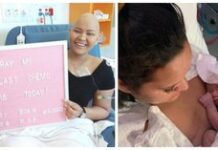Radiation, like other cancer therapies, can be a great cancer-fighting tool but can also have a variety of painful side effects. Skin burns or sores are among the most common and problematic of these side effects for radiation therapy patients. Their skin can get dry and irritated easily and may have trouble healing.
Brachytherapy is a specific type of radiation therapy where the radiation source is implanted within the patient’s body, inside the cancerous tumor. This causes the healthy tissue around the tumor to be exposed to less radiation than it would have been with traditional radiation therapy. Brachytherapy has improved radiation precision and safety, but it still has the side effect of skin damage similar to burn wounds.
Radionecrosis is generally treated using routine wound care, pain medications, and occasionally surgery. However, it often isn’t totally curable until after the patient’s course of radiation therapy is over, and it can also leave permanent damage in some cases.

One of the ironies of any type of radiation therapy is that the burns it causes to patients’ skin can be bad enough that they actually require treatment to be postponed so they have more time to heal. It is imperative, therefore, that doctors and patients do anything they can to prevent those wounds from getting bad, because stopping treatment may make for worse cancer outcomes.
Now a new study has shown that light therapy may help radiation-related wounds heal 50 percent faster, which would be a great help to many people with cancer. Not only would it enable more people to do their full treatments without a break, but it would also help many patients feel better during their therapies.
Photobiomodulation, prior research shows, works by activating a protein that stimulates cells involved in healing and controls cell growth and division.

“For over 40 years, photobiomodulation has been known to accelerate the healing of acute and chronic wounds, triggering cellular processes that control inflammation, pain signaling, and tissue regeneration and repair,” said Rodrigo Mosca, Ph.D., visiting fellow from the Nuclear and Energy Research Institute (IPEN) and the Federal University of Rio de Janeiro, who led the study.
The study, from the University of Buffalo, studied the use of a low-dose light therapy called photobiomodulation on animal models. They found that the light therapy helped improve skin damage from radionecrosis, which is a breakdown of the body’s tissues caused by radiation. Radionecrosis causes inflammation and scarring and hampers blood flow.

Light therapy, which also relieves pain from oral mucositis, works by reducing inflammation and improving blood flow, and it helped patients heal up to 19 days earlier than without the therapy. Without photobiomodulation, wounds took 61 days to heal on average, versus 49 days with near-infrared light therapy or 42 days with red LED light therapy.
“To our knowledge, this is the first report on the successful use of photobiomodulation therapy for brachytherapy,” said senior author Praveen Arany, DDS, Ph.D., assistant professor of oral biology in the UB School of Dental Medicine. “The results from this study support the progression to controlled human clinical studies to utilize this innovative therapy in managing the side effects from radiation cancer treatments.”

“For over 40 years, photobiomodulation has been known to accelerate the healing of acute and chronic wounds, triggering cellular processes that control inflammation, pain signaling, and tissue regeneration and repair,” said Mosca.
Luckily, it appears that the healing properties of photobiomodulation do not help tumor cells heal. This is most likely because tumor cells have altered metabolic and regulatory signaling.
The findings, which corroborate the results found in previously done research, were published in the journal Photonics.
![]()
Provide Mammograms
Support those fighting Breast Cancer at The Breast Cancer Site for free! →
Whizzco Source







